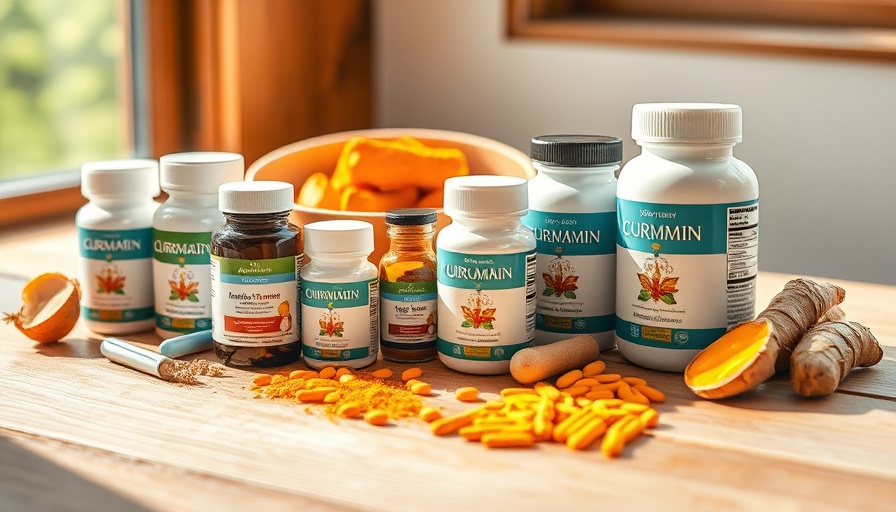
Curcumin: A Natural Ally in Post-Exercise Recovery
In the realm of fitness and athletic recovery, an age-old spice is making waves—curcumin, the active compound in turmeric. Recent studies, including one published in the Journal of Sports Nutrition, have illuminated its potential to mitigate exercise-induced muscle damage and inflammation, offering hope to athletes and fitness enthusiasts alike.
The Science of Curcumin
Curcumin is celebrated for its potent antioxidant and anti-inflammatory properties. As revealed in various research articles, including those from the National Institutes of Health, curcumin’s ability to tackle chronic inflammation is well-documented. Not only does it inhibit inflammatory markers such as TNF-alpha and IL-6, but it also helps reduce muscle soreness post-exercise by minimizing the release of creatine kinase (CK)—a commonly recognized indicator of muscle damage.
Why Muscle Damage Matters
Understanding muscle damage is crucial for anyone involved in physical training. After intense workouts, muscles can experience micro-tears, which leads to soreness and fatigue—phenomena known collectively as exercise-induced muscle damage (EIMD). The resulting inflammation can impede performance and prolong recovery time, making effective interventions vital.
How Curcumin Works: Key Mechanisms
Curcumin’s efficacy in enhancing recovery is rooted in several mechanisms:
- Anti-Inflammatory Action: By downregulating enzymes related to inflammation, curcumin tackles muscle soreness from the source.
- Oxidative Stress Reduction: Curcumin combats oxidative stress—particularly significant during high-stress exercises—by increasing antioxidant capacity across the body.
- Improvement in Recovery Metrics: Studies suggest that even short-term supplementation (ranging from 90 mg to 5000 mg daily) can significantly improve recovery outcomes, enhancing overall performance and readiness for subsequent training or competition.
Curcumin in Elite Sports
In prestigious sporting domains, research confirms curcumin’s role in aiding muscle recovery and reducing soreness among elite athletes. A pilot study on male footballers found that daily turmeric supplementation could minimize soreness and inflammation markers significantly post-match. This suggests a promising natural alternative to traditional non-steroidal anti-inflammatory drugs (NSAIDs), often associated with adverse side effects.
Practical Insights for Athletes
Here are practical tips for incorporating curcumin into a training regimen:
- Timing: To maximize effectiveness, consider taking curcumin either 2 hours prior to exercise or immediately after. This strategy aligns with studies indicating optimal anti-inflammatory effects.
- Formulation Matters: Select high-bioavailability formulations, such as Theracurmin or Meriva, which enhance absorption and efficacy.
- Dosing: Dosages between 400 mg and 1000 mg per day have shown effectiveness in mitigating EIMD while fostering improved muscle performance.
Conclusion
While more extensive research is needed, current data affirm curcumin's formidable role in supporting muscle recovery. Athletes and recreational exercisers alike are encouraged to explore the benefits of this powerful natural compound. Embracing curcumin could pave the way for enhanced physical performance while nurturing recovery, ultimately transforming how we approach post-exercise care.
Discover the healing properties of curcumin today and embrace a more holistic approach to your fitness journey!
 Add Row
Add Row  Add
Add 

 Add Row
Add Row  Add
Add 

Write A Comment